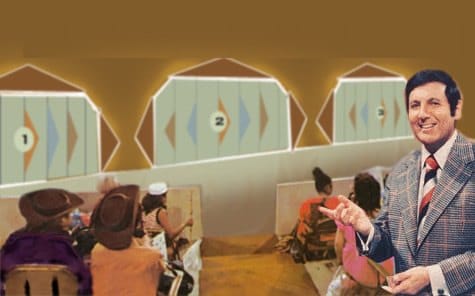Door Number Three
Ever found yourself in that place where you’ve got two choices, and both of them, well, suck?
Maybe it's "stay in the soul-crushing job" or "blow up my entire financial security." Maybe it's "keep being the accommodating one" or "become that difficult person." Maybe it's something else entirely, but the pattern's the same.
When there isn’t a ‘good’ option visible to us, it’s easy for our brain to get stuck … and then, we often end up oing nothing. (Which is actually a third choice, but not exactly a great one.)
I see this with my clients all the time. Smart, analytical people who can solve everyone else's problems but find themselves feeling trapped in these impossible either/or scenarios in their own lives. Then, to make it worse, they beat themselves up for getting stuck.
Here's the thing about your brain: it's trying to help. Really. When you're stressed or overwhelmed, it simplifies the world into digestible chunks. "Look," it says, "I've boiled down all the complexity into two clear options! Clean and simple! You're welcome!"
The problem is, your brain's version of "helping" is like a GPS that only knows two routes — neither of which ends up anyplace anyone would want to go.
Here’s the deal, though: most of the time, those aren't your only options. They might not be obvious, but there are usually other possibilities to be found out there.
But, how do you find them when your brain’s busy telling you they don’t exist?
First, you need to ground yourself and quiet that internal alarm in your head. Your brain literally can't see creative solutions when it's in "THE BUILDING IS ON FIRE" mode. Walk around the block. Put on music that makes you feel something. Pet a dog. Do those breathing/relaxation exercises you read about that seemed like some woo woo cliché. (They actually do work.)
Then, gently mess with your brain's certainty. How? Try these:
Play the Frankenstein game: What if you could stitch together pieces of both options? I had a client who had thought she had to pick steady income or creative freedom. Well, once she got creative, she found she was able to keep her job but change her schedule. She started taking Fridays off and used that to start building her creative business.
Channel someone who doesn't care about being "reasonable”: You know that friend who somehow makes unconventional choices work? What would they do? And no, I'm not saying blow up your life — pretty sure that’s not what they would do. Just borrow their perspective for like five minutes.
Try the "gun to your head" test: Okay, this is dramatic, but stick with me. If you HAD to come up with a third option — not a good one, just any option that wasn't the two you're stuck on — what would you invent? Changing the rules of the game, even in ridiculous ways, can be a real creativity spark.
Ask the magic question: "What would I do if I knew it wouldn't fail?" It’s magic not because it produces the ‘right’ answer’, but because it helps you get more connected to what you really want, and helps open up possibility your brain might not be seeing.
These exercises are important not because any of them will magically give you the answer, but because they’ll help you make a critical mode shift: getting your protective but overly-focused brain to go from decision making to possibility generating.
There usually is a door number three. Or four. Or eleven.
